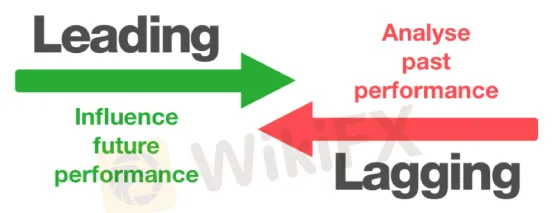Knowing the leading indicators from freemexy's blog
Knowing the leading indicators and lagging indicators to understand the economic trend in second
A
lagging indicator gives a signal after the trend has started and
basically informs you “Hey buddy, pay attention, the trend has started
and you‘re missing the boat.” Lagging indicators work well when prices
move in relatively long trends. They don’t warn you of any upcoming
changes in prices though, they simply tell you what prices are doing
(rising or falling) so that you can trade accordingly. You‘re probably
thinking, “Ooooh, I’m going to get rich with leading indicators!” since
you would be able to profit from a new trend right at the start.You
would “catch” the entire trend every single time IF the leading
indicator was correct every single time. But it won‘t be. When you use
leading indicators, you will experience a lot of fakeouts. Leading
indicators are notorious for giving bogus signals which could “mislead”
you. Get it? Leading indicators that “mislead” you? Haha. Man, we’re so
funny we even crack ourselves up. The other option is to use lagging
indicators, which aren‘t as prone to bogus signals. Lagging indicators
only give signals after the price change is clearly forming a trend. The
downside is that you’d be a little late in entering a position.To get
more news about WikiFX, you can visit wikifx news official website.
Often the biggest gains of a trend occur in the first few bars, so by
using a lagging indicator you could potentially miss out on much of the
profit. And that sucks.
It‘s kinda like wearing bell-bottoms in the 1980s and thinking you’re so cool and hip with fashion…

It‘s kinda like discovering Facebook for the first time when all your
friends are already on TikTok… It’s kinda like getting excited buying a
new flip phone that now takes photos when the iPhone 11 Pro came out…
Lagging indicators have you buy and sell late. But in exchange for
missing any early opportunities, they greatly reduce your risk by
keeping you on the right side of the market. For the purpose of this
lesson, lets broadly categorize all of our technical indicators into one
of two categories:
00001. Leading indicators or oscillators
00002. Lagging or trend-following indicators
While the two can be supportive of each other, they‘re more likely to
conflict with each other. Lagging indicators don’t work well in
sideways markets. Do you know what does though? Leading indicators! Yup,
leading indicators perform best in sideways, “ranging” markets. The
general approach is that you should use lagging indicators during
trending markets and leading indicators during sideways markets. Were
not saying that one or the other should be used exclusively, but you
must understand the potential pitfalls of each.

The Wall